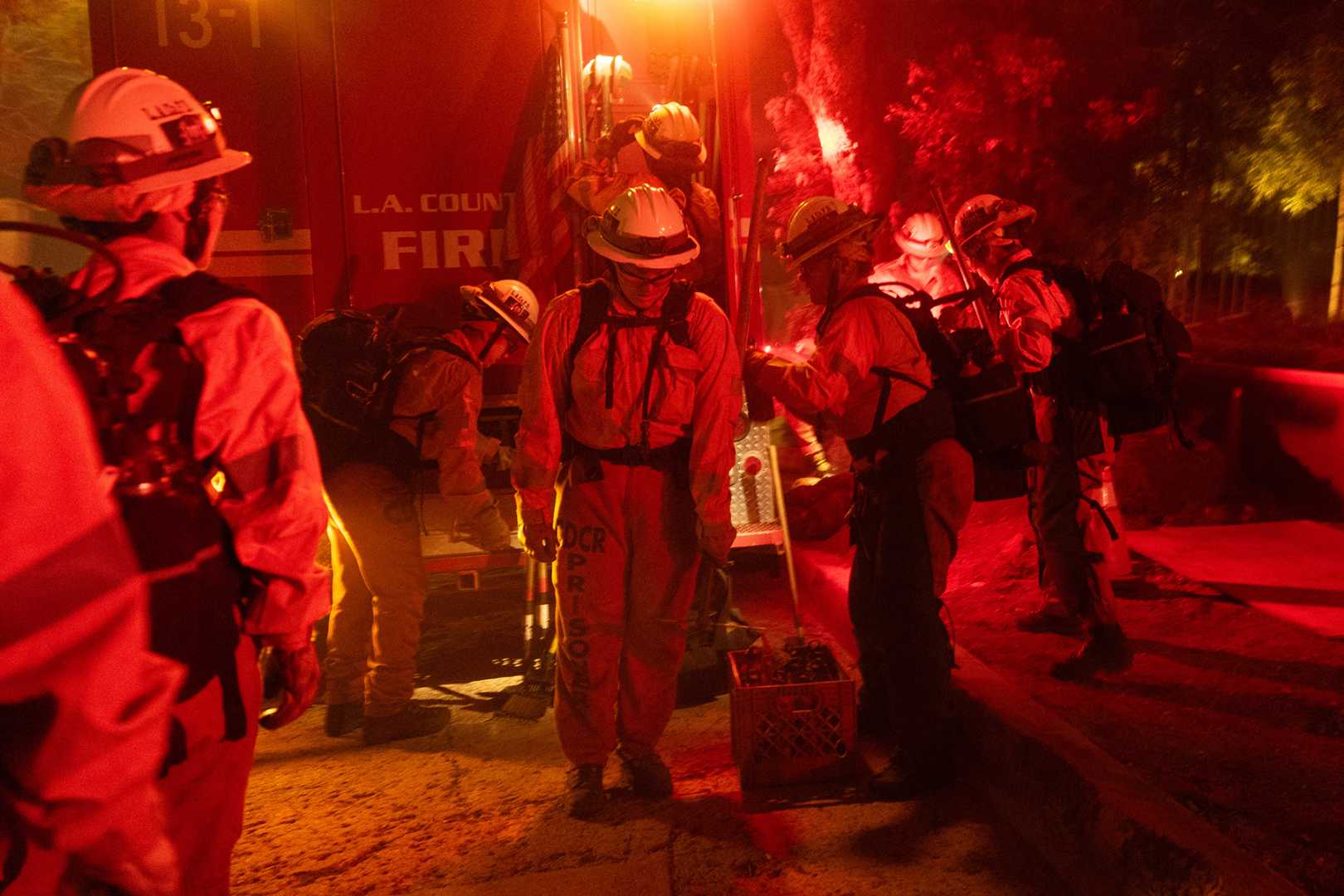News
Incarcerated Firefighters Battle Historic California Wildfires

PASADENA, Calif. (KABC) — As two historic wildfires raged across Southern California, Joseph McKinney and Sal Almanza, two incarcerated firefighters, were among the hundreds of prison inmates who rushed to the frontlines to protect lives and property.
“Physically, it’s pretty demanding. There’s a lot of hiking, and it’s in rough terrain,” said McKinney, who is part of California‘s inmate firefighting program. “We often go where bulldozers and other vehicles cannot go,” added Almanza, who is serving a four-year sentence at the minimum-security Fenner Canyon Conservation Camp.
The program, which includes more than 30 camps across the state, allows eligible incarcerated individuals to join fire crews. Participants can earn up to two days off their sentences for every day worked and receive approximately $10 a day, with an extra dollar during emergencies. For many, like Almanza, the program offers a pathway to reunite with family and pursue a passion. “I knew that the firefighting program was going to be the fastest avenue for me to get home to my son,” he said.
McKinney and Almanza have worked grueling shifts, sometimes up to 24 hours, battling the flames. “It was a lot, but they keep the water coming. They keep food coming, and you feed off the energy of the other guys,” McKinney said.
California State Assemblymember Isaac Bryan recently introduced legislation to increase the pay for incarcerated firefighters. “What AB 247 says is that if you are incarcerated and you are actively fighting a wildfire, you should be compensated at the same rate as the lowest-paid person who is not incarcerated,” Bryan explained during a visit to one of the fire camps.
The firefighters have been moved by the public’s support. “When the community comes out and shows the love and the outpouring, it just really feels good. It feels like someone cares and someone knows what you’re doing,” Almanza said.
Organizations like the Anti-Recidivism Coalition have advocated for these firefighters, helping to draft legislation to expunge their records and providing training programs for post-release careers. “I have about two years left on my sentence. By the time it’s over, I should be pretty dialed in and know what I’m doing, so I’m excited to pursue that,” McKinney said.
While the program offers hope and rehabilitation for many, critics argue that the low pay and demanding work are exploitative. As the fire danger in Southern California persists, the debate over the role and treatment of incarcerated firefighters continues.












